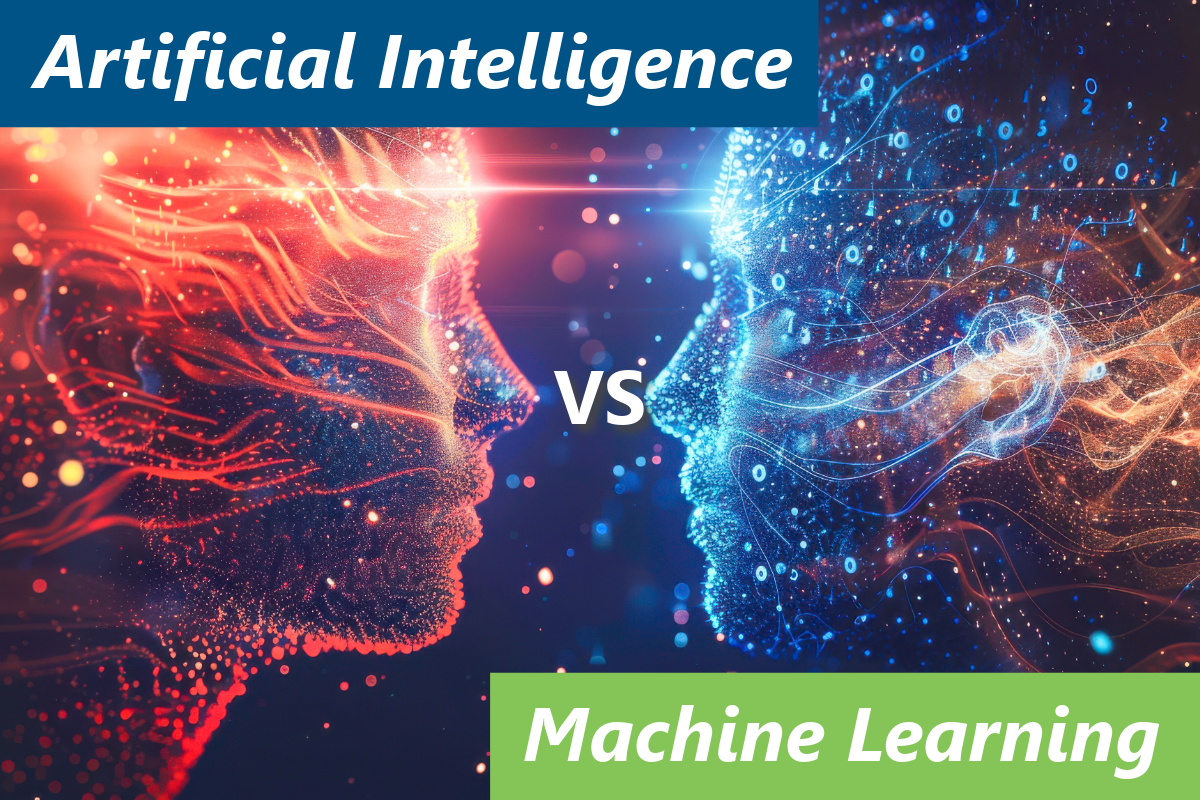Understanding the Difference: Artificial Intelligence vs. Machine Learning
By Kelly Miller

In the world of technology, "artificial intelligence" (AI) and "machine learning" (ML) are often used interchangeably, but they have distinct meanings. AI refers to the capability of a computer system to mimic human cognitive functions like learning and problem-solving. In contrast, ML is a subset of AI that involves the use of mathematical models to allow computers to learn from data without explicit programming.
How They Work Together
AI systems are typically built using ML techniques. Through analyzing data patterns, data scientists create and refine machine learning models, enhancing their accuracy over time. This synergy enables powerful capabilities such as predictive analytics, recommendation engines, and natural language processing.
Applications Across Industries
AI and ML are transforming various sectors, including but not limited to:
Retail
- Enhancing customer experiences with personalized recommendations.
- Optimizing inventories through demand forecasting.
- Automating checkout processes with computer vision technology.
- Detecting fraudulent transactions in e-commerce.
Healthcare
- Improving diagnostic accuracy with AI-powered imaging analysis.
- Enhancing predictive analytics for early disease detection.
- Personalizing treatment plans using patient data insights.
- Automating administrative tasks such as medical record documentation.
Finance
- Detecting fraud in real-time through pattern recognition.
- Assessing credit risks with AI-driven financial modeling.
- Automating trading strategies for stock market investments.
- Enhancing customer service with AI-powered chatbots.
Manufacturing
- Streamlining operations with predictive maintenance to reduce downtime.
- Enhancing quality control using computer vision to detect defects.
- Improving supply chain logistics through AI-driven demand planning.
- Optimizing robotics for automated production lines.
Education
- Personalizing learning experiences through AI-driven tutoring systems.
- Automating grading and administrative tasks to improve efficiency.
- Enhancing student engagement with interactive AI-powered content.
- Identifying at-risk students through predictive analytics.
Transportation
- Improving traffic management with AI-powered predictive analytics.
- Enabling autonomous vehicle technology through ML algorithms.
- Enhancing safety with AI-based driver monitoring systems.
- Optimizing delivery routes with AI-driven logistics planning.
Marketing
- Personalizing customer interactions through AI-powered chatbots.
- Optimizing ad targeting using ML-driven consumer behavior analysis.
- Enhancing content creation with AI-generated copy and visuals.
- Automating social media sentiment analysis for brand management.
Understanding the distinction between artificial intelligence and machine learning is crucial for businesses looking to leverage these technologies effectively. While AI encompasses a broad range of cognitive capabilities, machine learning provides the foundational techniques that enable systems to learn from data. By recognizing how these two concepts interact and applying them in various sectors, organizations can harness the power of AI and ML to enhance operational efficiency, drive innovation, and remain competitive in an increasingly data-driven world.
If you're interested in AI and ML training, you can view our courses by clicking below!
AI for Everyone
Sign Up for our Newsletter for more!